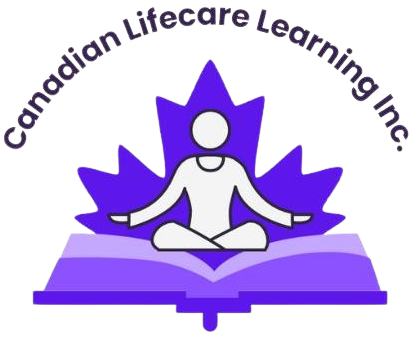The Power of Meditation: Cultivating Calm, Focus, and Inner Peace
In a world that often feels chaotic and overwhelming, many people are turning to meditation as
a way to find calm and balance. Once viewed as a spiritual or esoteric practice, meditation has
become mainstream, embraced by everyone from busy professionals to athletes and students.
But what exactly is meditation, and why has it become such an essential tool for mental and
physical well-being?
What is Meditation?
At its core, meditation is a practice of focusing the mind and cultivating awareness. It typically
involves sitting in a quiet space, concentrating on a specific object, thought, or activity—such as
the breath—and training the mind to return to that focus when it wanders. The goal is to achieve
mental clarity, emotional calm, and a deep sense of inner peace.
While there are many forms of meditation, they all share a common objective: to quiet the mind
and reduce the constant chatter that often leads to stress, anxiety, and distraction. Some
popular types of meditation include:
1. 2. 3. 4. 5. Mindfulness Meditation: This involves paying attention to the present moment without
judgment. It is one of the most widely practiced forms, often focusing on the breath or
bodily sensations.
Loving-Kindness Meditation (Metta): In this form, practitioners focus on developing
feelings of compassion and love for themselves and others.
Transcendental Meditation: This involves silently repeating a mantra (a word, phrase,
or sound) to promote relaxation and a sense of transcendence.
Body Scan Meditation: This technique involves systematically focusing on different
parts of the body to release tension and enhance body awareness.
Zen Meditation (Zazen): Originating from Buddhist practice, Zen meditation typically
involves focusing on breath and being fully present in the moment.
The Science-Backed Benefits of Meditation
What makes meditation so powerful is not just its ancient roots but the growing body of scientific
evidence that supports its benefits. Numerous studies have shown that regular meditation can
lead to a wide range of physical, emotional, and mental improvements.
1. Reduces Stress and Anxiety
One of the most well-known benefits of meditation is its ability to reduce stress. Meditation helps
to lower the levels of the stress hormone cortisol, allowing individuals to feel calmer and more
at ease. By practicing mindfulness and focusing on the present moment, meditation interrupts
the cycle of worrying about the future or ruminating on the past, which often triggers anxiety.2. Improves Focus and Attention
Meditation is like a workout for the brain. By regularly practicing mindfulness, you’re training
your brain to stay focused on one thing at a time. Studies have shown that people who meditate
regularly have improved attention span and concentration, allowing them to stay more
focused on tasks and avoid distractions.
3. Enhances Emotional Well-Being
Meditation is often used as a tool for improving emotional regulation. By cultivating awareness
of thoughts and emotions without judgment, it becomes easier to respond thoughtfully to
situations rather than reacting impulsively. This can lead to increased emotional resilience,
better self-control, and a more balanced outlook on life.
4. Boosts Creativity and Problem-Solving
The clarity and mental space that meditation fosters can help boost creativity. By quieting the
mental noise and allowing the mind to relax, new ideas and solutions often emerge naturally.
Meditation helps individuals think outside the box, leading to improved problem-solving skills.
5. Promotes Better Sleep
For those who struggle with insomnia or poor sleep quality, meditation can be a powerful tool.
Practices like body scan meditation or guided imagery help calm the nervous system and
relax the body, making it easier to fall asleep and enjoy deeper, more restorative rest.
6. Improves Physical Health
Regular meditation has been linked to numerous physical health benefits. Studies show that it
can help lower blood pressure, reduce chronic pain, and even boost the immune system. By
reducing stress and promoting relaxation, meditation helps the body heal and function more
effectively.
How to Start Meditating
One of the best things about meditation is that it’s accessible to everyone. You don’t need any
special equipment, and you can start with just a few minutes a day. Here’s how to begin:
1. 2. 3. Find a Quiet Space: Choose a quiet place where you won’t be disturbed. You can sit on
the floor, in a chair, or even lie down if that’s more comfortable.
Focus on Your Breath: Close your eyes and focus on your breath. Pay attention to the
sensation of air moving in and out of your nostrils or the rise and fall of your chest or
abdomen.
Notice When Your Mind Wanders: Inevitably, your mind will wander. That’s completely
normal! The key is to gently bring your attention back to your breath without judgment or
frustration.4. 5. Start Small: Begin with just 5-10 minutes a day. As you become more comfortable, you
can gradually increase the length of your meditation sessions.
Try Guided Meditations: If you’re new to meditation, guided sessions can be very
helpful. There are many apps and online resources available that offer free guided
meditations for beginners, such as Headspace, Calm, and Insight Timer.
Overcoming Common Challenges
Many beginners face challenges when starting a meditation practice. Here are some tips to help
you stay on track:
● “I can’t stop my thoughts”: It’s a common misconception that meditation is about
stopping your thoughts. The goal is not to eliminate thoughts but to become more aware
of them and let them pass without attachment.
● “I don’t have time”: Even a few minutes of meditation can have significant benefits. Try
starting with short sessions and build from there.
● “I feel restless or uncomfortable”: It’s normal to feel restless when you first begin
meditating. If sitting still is difficult, try walking meditation or gentle yoga as a way to ease
into mindfulness practices.
● “I don’t notice any changes”: Meditation is like any other skill—it takes time and
consistency to see results. Be patient with yourself, and try to meditate regularly for a
few weeks before evaluating its impact.
Incorporating Meditation Into Daily Life
While sitting meditation is a powerful tool, mindfulness can also be integrated into your daily
activities. Here are a few ways to practice mindfulness throughout the day:
1. 2. 3. 4. Mindful Eating: Pay attention to the taste, texture, and smell of your food. Eat slowly
and savor each bite, noticing how your body feels during the meal.
Mindful Walking: During a walk, focus on the sensation of your feet touching the
ground, the sound of your breath, and the sights and sounds around you.
Mindful Listening: Whether in a conversation or listening to music, fully engage with
what you hear. Notice the subtleties in tone and expression without distractions.
Gratitude Meditation: T ake a few moments each day to focus on things you’re grateful
for. This practice can shift your mindset toward positivity and contentment.
Conclusion
Meditation is more than just a way to relax—it’s a powerful tool for improving your mental,
emotional, and physical health. By practicing regularly, you can reduce stress, enhance focus,
and cultivate a deeper sense of inner peace. Whether you’re seeking to manage anxiety,
improve sleep, or simply find more balance in your day-to-day life, meditation offers a pathway
to greater well-being.With consistency and patience, meditation can transform the way you experience the world
around you, helping you navigate life with a calm and centered mind.







